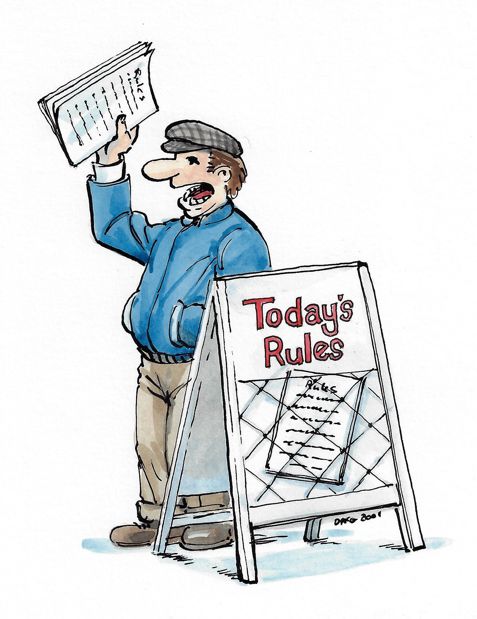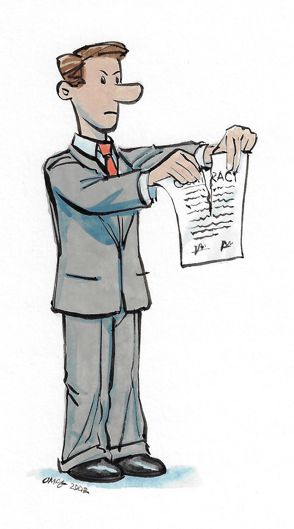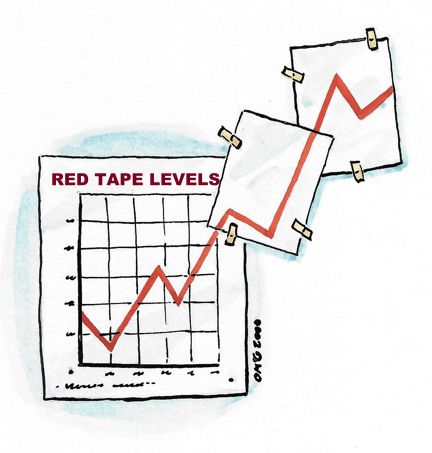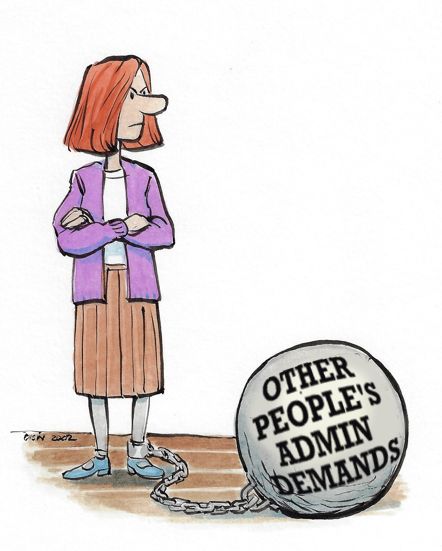In just about any profession in Ireland, if you work with children or vulnerable people, you’ve probably had to go through a background check by the Gardaí – Ireland’s police force – but for children’s writers and illustrators, it can get especially complicated and repetitive. If you’ve been doing this long enough, you’ll know exactly what I mean. I’ve been planning to write a piece on Garda vetting for a while, and having recently attended a joint event on the process held by Children’s Books Ireland and Poetry Ireland, this seemed like a good time.
This session was aimed specifically at writers, illustrators and the people who run children’s book events. Poetry Ireland are heavily involved in the vetting system because of all the children’s events they organize – especially through the Writers in Schools Scheme. They also provide a channel for vetting applications for other arts organizations that don’t do enough of these events to register themselves. So anyway, PI and CBI had brought in Marissa Costello and Sergeant Jim Gould, who work at the National Vetting Bureau, to talk to us, and what I learned from that session informs much of this article.
First let me say that I am no expert on this; I’m not a guard or a lawyer, and have no relevant qualifications. There is no legal advice to be had here. If you want a proper explanation of what the National Vetting Bureau does and how they do it, you need to visit their website. If you have a specific question about the process, you can contact them about it. Their details are:

National Vetting Bureau, Racecourse Road, Thurles, Tipperary, E41 RD60, Ireland.
Locall: 0818 488 488
Telephone: 0504 27300
Email: vetting@garda.ie
This piece is purely a response to what I heard on the day, to previous conversations I’ve had with people in the know, and the fact that I’ve gone through this process many times since I started working in children’s publishing. Writing this is as much about me organizing my thoughts on the whole thing as it is a broad strokes look at the topic, and I’m pitching it purely from the point of view of a self-employed artist.
I’m going to start by going through some of the background. If you’re not all that interested in the background, and want to skip on to the part that relates specifically to the application, it’s further down, under the heading ‘Going Through the Process’.
Who Needs to Be Vetted and Why?
The first thing to know is that, if you’re self-employed, you can’t have yourself vetted. For that reason, most of what follows in this article is actually somebody else’s problem. The application can only go through what’s referred to as a ‘relevant organization’, and there’s no guarantee that a company, group or association can register itself. The Vetting Bureau consists of a few overworked souls sitting in an office, so for the sake of managing how many people they have to deal with, the bureau only works with organizations that handle large numbers of applications, relying on them to filter what comes through from everyone else. This is why Poetry Ireland or the Teaching Council would be able to register as a relevant organization, but a small children’s book festival or theatre group would not. In that case, the festival or group would have to approach a larger arts body to provide that vetting channel.

As a self-employed artist, the relevant organization has to apply on your behalf, and will send you a form for you to fill in. Whether you’re being contacted by a school, a local authority, an arts organization or some other body, they will be working with someone registered with the bureau, a specific ‘liaison person’ who’s responsible for communicating with the Vetting Bureau.
It’s important to note that this application process is intended to protect your rights as well as providing a means of checking your background. The first step is the paper form that you have to fill in by hand, sign and physically send in. The liaison person then signs it themselves and sends it to the bureau. This is the legal proof that the organization has asked for your consent, and you have given it.
Your have rights under the law. Vetting involves obtaining private, sensitive information, and there are particular conditions under which you can be asked for this information. Someone can’t just demand that you provide vetting on your own, and they can’t do it for you unless they’re registered with the National Vetting Bureau.
Whenever children are involved in an organization’s work, the question will have to be asked: ‘Is there a vetting requirement and whose requirement is it?’ As well as safeguarding guidelines set down by Tusla, there are specific laws around the need for vetting, but they still need to be interpreted for each case. An organization can only ask you to go through the process if what you’re doing what counts as ‘relevant work’, and the definition of this term is . . . well, this is the definition on the National Vetting Bureau’s website:
‘Any person who is carrying out work or activity, a necessary and regular part of which consists mainly of the person having access to, or contact with, children or vulnerable persons.’
At least, that’s the short version. Remember that ‘necessary and regular’ term – we’ll be coming back to that. The liaison person is responsible for making sure you’re properly identified, which includes providing a proof of name, address and date of birth. There are slight variations on how each organization does this, but the baseline requirements are set by the bureau.
I’ve heard of artists who were asked to go and show their ID in person, months before the event, which might pose a problem if the arts festival office is in Donegal and the artist lives in Kerry. On more than one occasion, I’ve had to go to the local Garda station to have a guard sign and stamp a photocopy of my ID to be posted in. This might be for a single library visit, for which I was being paid a one-off fee. Completing this identification stage in some form or other is vital however – the whole process is pretty much meaningless if they haven’t proven who’s being vetted.

Each organization has different roles and ways of operating, so they’ll need to look at how the process applies to them and who they need to have vetted as a result. The Teaching Council would have one set of criteria, Poetry Ireland’s Writers in Schools would have another, and the GAA would have another. The National Vetting Bureau sets the baseline, and the relevant organization has to decide how those rules have to work in their particular case.
If a building is just providing a venue for an event or workshop being run by another organization, let’s say a children’s book festival is using a hall in a community centre, then the festival is responsible for any vetting, not the owners of the building. Providing a venue is not ‘relevant work’. If a library is hosting its own children’s event or workshop, then the library is responsible.
And then there’s what Sergeant Jim Gould considers the most problematic term in the whole vetting process: ‘merely incidental’. I missed his direct reference to this, but I’m pretty sure he was talking about this; section 5 in Schedule 1, Part 1 of the National Vetting Bureau (Children and Vulnerable Persons) Act 2012. You have to be vetted for (*takes a deep breath*):

‘Any work or activity which consists of the provision of educational, training, cultural, recreational, leisure, social or physical activities (whether or not for commercial or any other consideration) to children unless the provision of educational, training, cultural, recreational, leisure, social or physical activities is merely incidental [my emphasis] to the provision of educational, training, cultural, recreational, leisure, social or physical activities to persons who are not children.’
Yes, I’m sure they had to write that list of activities three times, because . . . lawyers. Anyway, that ‘merely incidental’ creates the situation where, if you’re pitching your activities at families, rather than children specifically, then the fact that there are children present is ‘merely incidental’, and vetting may not be necessary.
So . . . that’s a thread I’m not going to pull on, for fear of what it might unravel, but it definitely throws up some questions for festival organizers in particular.
And having staff present at the event has no bearing on whether the person doing the session needs vetting or not. That includes schools. If it’s decided you need vetting, whether or not you’re left alone in the classroom does not matter.
Interestingly, someone who’s an unpaid volunteer for a day at a festival might not need vetting, as the work with children is not ‘necessary and regular’, but if you’re being paid to do a single session, the fact that it’s paid work changes those circumstances, I think because of this other clause in that same Act (but seriously, I’m not a lawyer, don’t quote me on this):
‘3.— (1) This Act shall not apply to any of the following, namely: (c) the giving of assistance by an individual— i) on an occasional basis, and (ii) for no commercial consideration [my emphasis], at a school, sports or community event or activity, other than where such assistance includes the coaching,mentoring, counselling, teaching or training of children or vulnerable persons.’
Note the ‘on an occasional basis, and for no commercial consideration’.
And then there’s schools. One rule that’s especially important for writers is that a single, one-off school visit does not require vetting – this comes straight from the National Vetting Bureau, and was established in 2016. A lot of my school sessions are arranged directly, rather than through the Writers in Schools Scheme, so if I had to get vetted for each one it would be a nightmare, and I simply couldn’t do it. If you’re doing a residency that involves multiple visits, it’s a different case, but it’s not necessary if you’re only showing up for one day to do a session. As far as I could gather from the seminar, this only applies to schools, as opposed to a library or festival event. I’m not sure why.
A person does not have to be working directly with children or vulnerable people in order to require a background check. If they’re still likely to have contact with them, through their work, like a school caretaker, that contact can count as ‘necessary and regular’. The Ian Huntley case in the UK is a stark example of the risks involved here.
If you’re doing visits as part of the WIS Scheme, you will be vetted to get on the scheme, but a school can still insist that you be vetted separately if you’re going to be spending a lot of time there. This has never happened to me – every school I’ve done Poetry Ireland residencies for has accepted PI’s vetting, and I’ve only very rarely been asked to be vetted for working in schools, because the contact tends to be so short.

Where two bodies are partnering on an event or workshop – a festival and a library for example – then they need to have a joint agreement about vetting. In that case, the library would normally do it, as they’ll already be set up for it. If any outside organization is sending someone into a school, the same conditions can apply, so whether it’s a writer working with Poetry Ireland or a GAA coach coming in to do some training, an agreement has to be reached over who’s responsible for vetting.
One last point here is that terms like ‘teenager’, ‘young people’ or ‘young adults’ have no real meaning in this process. From the point of view of the law, someone is either under eighteen, or over eighteen – they’re either a child or an adult. It doesn’t matter if you’ve got a seventeen-year-old who already knows it all and is turning eighteen next month, they’re still a child, and the requirements for vetting still apply.
If you’re just an artist asked to run an event or workshop however, none of this is really your problem – yet. You just need to go through the process if you’re asked.
Going Through the Process
So you send in the signed form. Assuming your application is accepted by the bureau, which can take a couple of weeks, you’ll be sent a link to a longer form online, where you have to fill in EVERY. SINGLE. ADDRESS. YOU’VE. LIVED. AT. SINCE. BIRTH. This includes providing postal codes for addresses that, for most of my life at least, did not have postal codes. If you have the address, you can look up the eircode here.
For me, each form means filling in FOURTEEN addresses. And you have to fill in a line at at time, so there’s a limit to how much you can copy and paste for each one. This is actually an improvement on when it started out, when the whole form had to be physically posted, and you had to handwrite each letter into an individual box in block capitals. There was no way of shortcutting this, and it could drive you out of your freakin’ mind. Still, now it’s online. If you’re doing this for the first time and it’s likely to be needed again, I strongly advise you to save that text into a document and spare yourself having to type everything out every time.

I say ‘every time’, because that’s the real kicker. You can only apply to be vetted to work for the specific organization carrying out the application. If you work for another organization the next week, and need to be vetted, you have to go through the whole process again. For a teacher, applying through the Teaching Council, it means only doing it once, and occasionally updating it, because they’re in employment as a teacher in the school system throughout that time. For a self-employed artist who does events in different libraries, schools and festivals all around the country from one end of the year to the other, it can be head-wrecking. For every organization that demands it, you have to go through the whole process again. I think I’ve had to send pretty much the exact same information to the same people in the same office fifteen or sixteen times, as well as a couple of times in Northern Ireland, which has a separate system. And the demand for vetting is becoming increasingly common as local authorities, in particular, load on the admin work for contractors.
If you hate forms, or if this whole process is liable to make you paranoid (I suffer from a bit of both), there’s good web page here that walks you through each section of the form in nice, clear terms. Just bear in mind, I don’t know if this link will be kept up to date.
I’m not clear on whether the bureau can check on addresses outside the Republic of Ireland, even in Northern Ireland, but if someone is coming from the UK or another country and needs to be vetted, they’ll probably have to have it done in that country, it’s likely that an organization in Ireland can’t apply for that, and I’m not sure if you can provide transferrable proof – after all, it’s not even available in our system. As the insistence on vetting becomes more common in local authorities, this could become a big issue for libraries or book festivals who want to book authors from the UK.
So then, your application goes in. The bureau’s website describes what follows:
‘On receipt of an application for vetting disclosure in respect of a person concerning relevant work or activities, the National Vetting Bureau will make such enquiries with An Garda Síochána or a Scheduled Organisation as it deems necessary to establish whether there is any criminal record or specified information relating to the person.’
Depending on the backlog, this can take a long time. If someone asks you to apply for vetting for an event scheduled for next week, it’s not going to happen. It can come through in a few weeks, but you really need to allow a few months.

From the Gardaí’s point of view, a background check is only good for the day it’s carried out. You could be convicted of something the very next day, and they don’t then contact everyone who’s ever had you vetted. But people have to be practical about this, or they could lose the run of themselves, and end up checking everyone all the time, and who wants that? Certainly not beleagured souls in the National Vetting Bureau. Tusla, the national body responsible for safeguarding children, recommends running checks as often as possible. Poetry Ireland now has a policy of asking artists to update their vetting every three years, but each relevant organization has to set its own standards on this. Suffice to say, even if you only ever work regularly for one body that requires vetting, you’re still going to have to go through this more than once.
There was a lot about this whole process I was muddy about, and this seminar was a chance to clear some of that up. Because it mostly took the form of a question-and-answer session, the order of the information wasn’t always the best at times, so I’m trying to lay it out better here. The very first thing Costello and Gould covered was the teeth-grinding need for having to apply over and over again.

There are two possible alternative approaches to managing this system. One would be where you apply and get a certificate of some kind, or a copy of the information itself and you can pass that on to others. This could mean that a person could change that information, or hide some of it.
If you have a central database that anyone can be given temporary access to, when you refer someone to that database, how do they authenticate who you are, or ensure that you’re referring them to your details and not someone else’s? You still have the ID problem. And how much information should they be able to access? This is private data. Who’s responsible for the safety of that information? What data do they have the right to hold on to permanently? The bureau people didn’t specifically mention it, but I imagine that General Data Protection Regulation (GDPR) comes into play here. While they may be checking for criminal records, the data they’d end up holding would not be related to any crime – it would just be personal data. I still have questions about this whole aspect of it, but I’ll get back to them in a bit.

Reducing the Headaches
I don’t know what proportion of the bureau’s work is vetting the same people over and over again, but it cannot be the best use of their time. Having to make the same application over and over again certainly isn’t the best use of mine. And according to Costello and Gould, there are no moves at the moment to reform the system, because of the issues with identification and responsibility.
There are two things, as I see it, that could possibly be done here, at least for self-employed artists, and they were discussed during the seminar, if only very briefly. The first would be to try and cut back on the number of different organizations that we have to apply through. For instance, a lot of our events are with libraries, and those vetting applications go through separate local authorities. But all thirty-one local authorities work together with the Local Government Management Agency (LGMA), sharing information and resources. Why do we need to go through each local authority in turn, when we could have a single system that covered us for all of them? If vetting becomes mandatory across the country, am I really going to have to apply thirty-one separate times?

Could there be a way for separate arts organizations to share a form of registration, under which artists could be identified – again, pooling resources so that the same process that works in one organization like Poetry Ireland or the Teaching Council, could recognize professional artists? The vast majority of us are self-employed, but we don’t have a system that acknowledges this. Instead, all that extra admin work ends up loaded on individuals who are not paid for it, and adds to the pressure on people who are facing increasingly complicated conditions even as the value of our work in the digital world is undermined. I’ve written about this here.
Speaking of that digital world, when I’m contacted by the admin or accounts staff in an organization now, I’m being asked for a steadily growing amount of personal information, which I’m expected to hand over to strangers, which will be added to databases I have no control over and have no access to, but which can often be accessed by a frightening number of other people. I’ll always ask the person I’m dealing with to delete any email I send with financial details, but they’re still storing that information somewhere. Now that almost all payments are carried out by bank transfer, I’m sending my bank details out on a regular basis. Nearly every payment I receive is from a different organization. Every single time is a security risk, and the more information they have on me, the greater the risk. I am almost never just asked for the bank details, they always want me to fill out a form.

Consider then, the risk of adding your identification details to that, parts of your life history. How confident would you be in the security of your local county council’s computer network?
One of the things I often have to provide is my Tax Clearance Number, to verify my Tax Clearance Certificate, which establishes that my tax affairs are in order. This is a kind of certification that I have to qualify for, which can be checked at any time, but which can also be withdrawn at any time if I’m not complying. This is a good enough system for the Revenue Commissioners, who are not known for being slack about their file-keeping.
Why could we not have a reference number like that for vetting? We apply once, with the full identification process, and are then given a reference number like the Tax Clearance Number, so that an up-to-date check can be made quickly and easily at any time. After all, we’re talking about a Garda database. If you’re convicted of something that results in a criminal record, you could automatically lose that certification, and have to reapply. A conviction might not necessarily prevent you from working with children – I imagine different organizations have different criteria – but that would have to be dealt with on an individual basis.
The reference number could be used quickly to establish if you’ve had any convictions since your application. If you had to provide a proper photo ID to the organization involved, to prove who you are, it would be even more secure than the Tax Clearance Number. Couldn’t something like this be made to work?
The vetting system is a hugely important one, and I fully support it, and trust the expertise of those who run it, but like much of the admin work that self-employed artists are often faced with, it wasn’t designed with us in mind. And as is usually the case in dealing with one-size-fits-all processes, we’re the ones who end up compensating for all the extra unpaid work that’s needed because of that oversight.
It should also be pointed out that carrying out a background check on someone does not mean you’ve covered yourself in terms of child protection. It only establishes that the person hasn’t been convicted of doing anything dodgy. The National Vetting Bureau is not responsible for setting the standards for the safeguarding of children – that is the role of Tusla.
I’d like to thank Poetry Ireland – particularly Jane O’Hanlon and Anna Bonner – and Children’s Books Ireland for setting up an illuminating session, and Marissa Costello and Sergeant Jim Gould for providing so many answers to questions I’ve had for years. The vast majority of the events and workshops I’ve taken part in that involved children have been well run by organizations that take their responsibilities seriously, so we can often take that for granted. It’s only when you see something wrong that you really appreciate the consideration, initiative and work required to do it right, and vetting is only a small part of that.
Children have rights – and so do the people who work with them. When we take part in this system, it’s important to remember that it’s set up to protect both.
